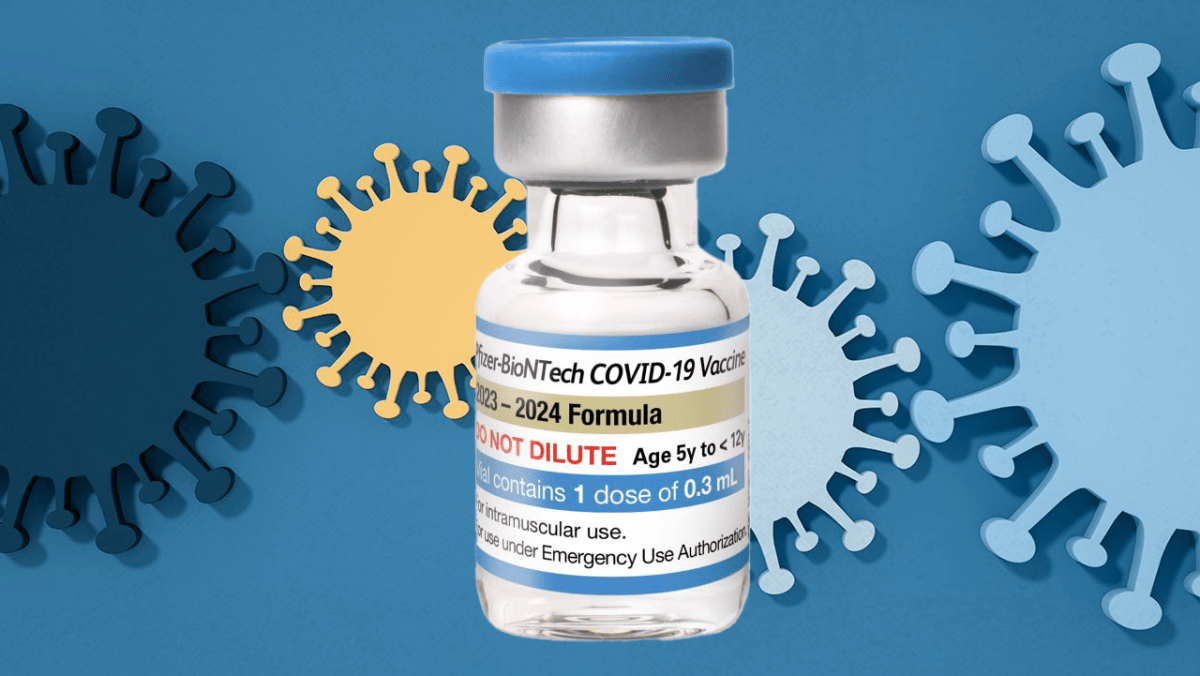Last Updated on September 15, 2023 by BVN
Breanna Reeves
The U.S. Food and Drug Administration (FDA) approved and authorized the emergency use of updated COVID-19 booster shots that are designed to target the Omicron variant XBB.1.5. Following the FDA’s decision, the U.S. Centers for Disease Control and Prevention’s (CDC) Advisory Committee on Immunization Practices met on Sept. 12 to decide who should receive the mRNA updated vaccine.
The FDA’s approval comes as COVID-19 cases and hospitalizations are on the rise across the U.S. with the spread of new Omicron variants. BA.2.86 has been identified by the U.S. Centers for Disease Control & Prevention (CDC) and has been found in wastewater. According to the CDC’s latest risk assessment, recent increases in COVID-19 cases and hospitalizations in the U.S. are “not being driven by BA.2.86 and instead are being caused by other predominantly circulating viruses.”
The updated booster formula, manufactured by Moderna and Pfizer, includes a monovalent (single) component that correlates with the Omicron variant XBB.1.5. While new variants have been identified as more infectious and harmful, the FDA stated that the updated vaccines are expected to provide good protection against COVID-19 from current variants.
According to the FDA, recent studies conducted regarding the vaccines suggested that the updated formula was a “good match” for protection against currently circulating varitans, including EG.5 and BA.2.86.
The CDC has currently identified new variants of concern, both subvariants of the Omicron variant, called EG.5, which accounts for 21.5% of current cases as of Sept. 2, and FL.1.5., which accounts for 14.5% of new cases.
“[A]n updated vaccine will shortly become available that helps address multiple Omicron XBB-related sublineages, which currently account for the vast majority of COVID-19 cases globally,” said Prof. Ugur Sahin, M.D., CEO and Co-founder of BioNTech, in a press release.
“Studies about confirmed viral infections suggest that COVID-19 adopts a seasonal pattern with peaks in fall and winter, similar to other respiratory viruses.”
The FDA “anticipates” that the COVID-19 vaccine formula may need to be updated annually, similar to how the flu vaccine is updated seasonally.
Both updated vaccines are each approved for individuals 12 years of age and older, and are authorized for emergency use for children six months old through 11 years old. According to the FDA, following the rollout of the update vaccine, the previous bivalent Moderna and Pfizer COVID-19 vaccines are no longer authorized for use in the U.S.
“The public can be assured that these updated vaccines have met the agency’s rigorous scientific standards for safety, effectiveness, and manufacturing quality,” said Dr. Peter Marks, director of the FDA’s Center for Biologics Evaluation and Research, in a statement. “We very much encourage those who are eligible to consider getting vaccinated.”
On the agenda for the CDC’s Advisory Committee meeting was the COVID-19 vaccine effectiveness update, evidence and recommendations, and an overview of vaccine implementation.
Once the committee releases their guidance on vaccines, CVS Pharmacy said they will update their systems to provide vaccine scheduling and offer walk-in appointments to eligible patients. For those with health insurance, vaccines will be free under their plans. However, some worry about those who are not insured, especially as Medi-Cal continues to disenroll thousands of Californians.
With the end of the U.S. Government COVID-19 Vaccine Distribution Program, roughly 25-30 million adults (ages 18-64) without insurance and other adults whose insurance will not provide free COVID-19 vaccines may not have access to the new boosters.
Under the U.S. Department of Health and Human Services’s (HHS) Bridge Access Program For COVID-19 Vaccines and Treatments, uninsured and underinsured individuals will receive free COVID-19 vaccines for a limited time once they are moved to the “commercial market.”
Administered by the CDC, the program has begun providing free coverage for millions of adults who may have lost access to COVID-19 vaccines. Uninsured individuals will be able to access vaccines at their local pharmacies and local health centers, according to HHS. Doses will be available in some locations now, with distribution increasing in the coming weeks.
However, the free vaccines through this program will not be available after December 2024.
Similar to the 1993 federal Vaccines for Children (VFC) program that provided vaccine access at no cost for nearly half of U.S. children and adolescents, the Vaccines for Adults (VFA) program has been proposed in both the Fiscal Year 2023 and 2024 Presidential Budgets. VFA would cover all recommended vaccinations at no cost for uninsured adults, but has not yet been enacted into law.
This article is published as part of the Commonwealth Fund Health Equity Reporting Fellowship.



